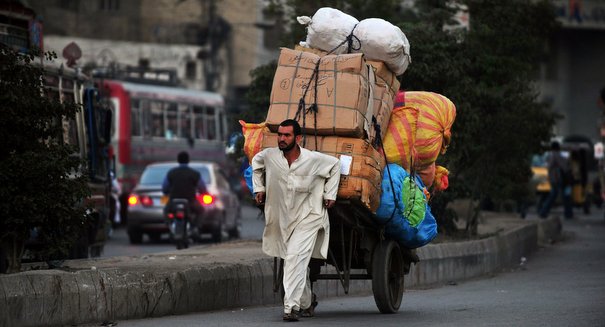Unable to sustain solid growth, Pakistan’s economy is teetering on the brink of collapse, with one-third of the population living below the poverty line. S. Akbar Zaidi writes in a paper that Pakistan’s economic instability stems in large part from low government revenue due to the elite’s use of tax evasions, loopholes, and exemptions. Without tax reform, Pakistan will continue to run an unsustainable debt and be forced to rely on Western donors for bailouts.
Policy Recommendations
- Eliminate exemptions. Fewer than three million of Pakistan’s 175 million citizens pay any income tax, and the country’s tax-to-GDP ratio is just 9 percent. By eliminating tax exemptions for the rich, politicians can fund essential social services.
- Increase tax revenue. Pakistani legislators must build a consensus to tax the rich and elite if they want to match growth rates in nearby developing countries.
- Spend more on development. Pakistan has spent twice as much on defense during peacetime as it has on education and health combined—this needs to change.
- Stop the bailouts. Donor countries must put conditions on funding and should emphasize tax and economic reform to help Pakistan develop long-term economic plans for sustainable growth.
“Pakistan’s lack of a proper tax and revenue regime has resulted in high rates of tax evasion, burdening the country with unsustainable debt and undermining its development priorities,” writes Zaidi. “The key to the country’s economic prosperity—even its survival—is a far-reaching program of tax reform.”



.jpg)

